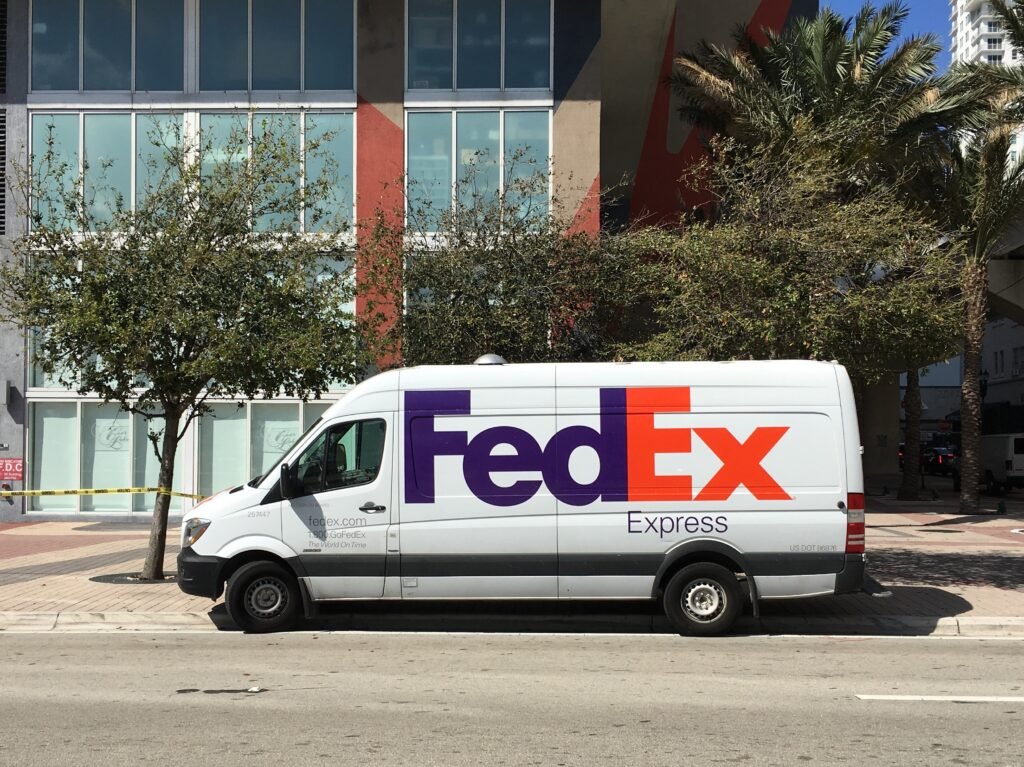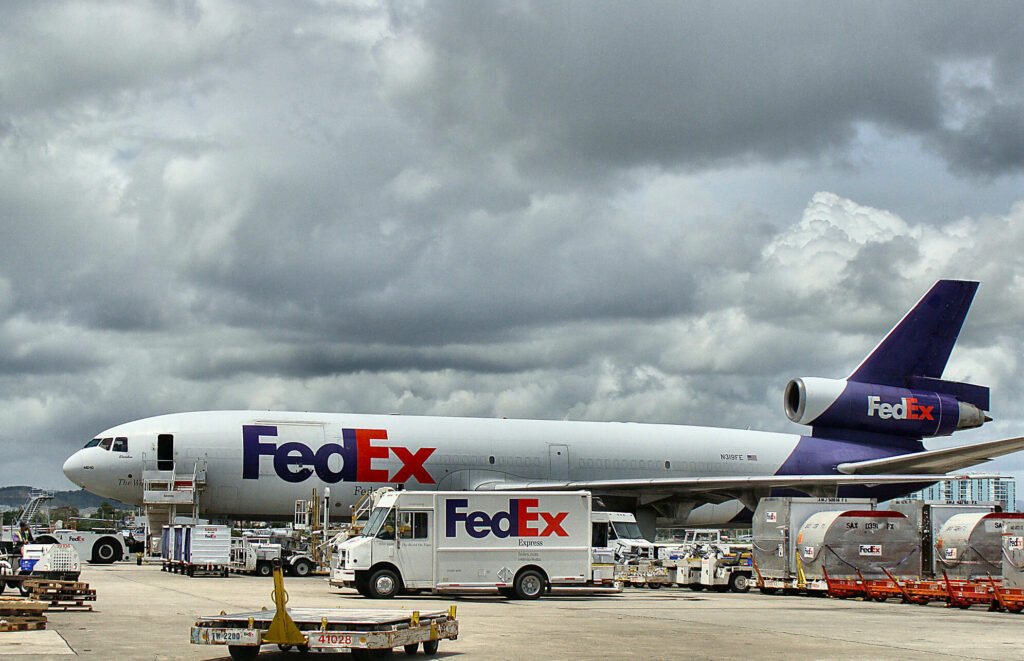A Global Leader in Logistics and Innovation
When it comes to global logistics, few names are as instantly recognizable as FedEx. From overnight deliveries to international freight, FedEx has consistently led the industry in both innovation and service. Established in 1971, this American multinational has grown from a small express transportation company into a global powerhouse, redefining how packages move around the world.
FedEx, originally known as Federal Express, was the brainchild of Frederick W. Smith. While studying at Yale University, Smith envisioned a system specifically designed to handle time-sensitive shipments. Unlike traditional postal services, which were not optimized for speed or efficiency, Smith’s model prioritized overnight delivery and real-time tracking.
This innovative idea became a reality in 1973 when FedEx began operations in Memphis, Tennessee. Initially serving just 25 cities, the company quickly expanded. Today, it operates in over 220 countries and territories, delivering more than 16 million packages every day.


FedEx Corporation is structured into several core business segments, each designed to serve a unique function:
This diversified structure allows FedEx to remain agile while delivering a broad range of services tailored to specific needs.
One of the key reasons for FedEx’s long-term success lies in its commitment to technology and innovation. In fact, FedEx was among the first companies to implement real-time package tracking—a feature now considered standard in the industry.
Moreover, FedEx continually invests in automation, robotics, and artificial intelligence to enhance operational efficiency. For example, the company has tested delivery robots, drone delivery systems, and autonomous vehicles to stay ahead of the curve.
In today’s world, sustainability is more than a buzzword—it’s a responsibility. FedEx acknowledges its role in shaping a sustainable future. The company aims to achieve carbon-neutral operations by 2040. To reach this goal, FedEx has committed to investing over $2 billion in vehicle electrification, sustainable energy, and carbon sequestration projects.
Additionally, FedEx is replacing its fleet with zero-emission electric vehicles and enhancing fuel efficiency across its air and ground networks.
With the rapid growth of e-commerce, especially during and after the COVID-19 pandemic, FedEx has become an indispensable partner for businesses of all sizes. Whether you’re a large retailer or a small online store, FedEx provides customized logistics solutions that scale with your needs.
Through partnerships with major platforms like Shopify, Amazon, and Walmart, FedEx has expanded its reach, enabling faster and more reliable deliveries even in remote locations. In doing so, it has helped businesses meet the ever-growing consumer demand for quick shipping and real-time tracking.


FedEx operates one of the largest cargo air fleets in the world, with over 650 aircraft and tens of thousands of delivery vehicles. Its hub in Memphis International Airport remains one of the busiest cargo airports globally. In addition, regional hubs in Europe, Asia, and Latin America ensure fast and seamless international shipping.
This vast infrastructure gives FedEx a competitive edge in both speed and reliability—two essential attributes in the logistics sector.
FedEx employs over 500,000 people worldwide, and the company places a high value on corporate culture. It follows the People-Service-Profit (PSP) philosophy, which emphasizes that if employees are well cared for, they will deliver outstanding service, which in turn will drive profits.
Employee benefits, training programs, and a strong focus on diversity and inclusion make FedEx not just a logistics leader, but also a top employer in many regions.
Giving back to the community is a significant part of FedEx’s mission. Through FedEx Cares, the company invests in global initiatives related to disaster relief, education, and entrepreneurship. In fact, FedEx has committed to investing $200 million in 200 global communities by 2025.
These efforts not only enhance the company’s image but also create a positive impact in regions where FedEx operates.
Like any global enterprise, FedEx faces its share of challenges. Rising fuel costs, regulatory pressures, and increased competition from companies like UPS, DHL, and Amazon Logistics are just a few hurdles.
Nevertheless, FedEx remains resilient. Its adaptability, strategic acquisitions (such as the 2016 acquisition of TNT Express), and continued investment in technology put it in a strong position for the future.
Looking ahead, FedEx plans to expand its footprint in Asia-Pacific markets, optimize last-mile delivery solutions, and continue reducing its environmental impact.
FedEx is far more than a package delivery company. It is a global innovator, an economic enabler, and a company committed to excellence in every aspect of its operations. From its humble beginnings to its current status as a logistics titan, FedEx’s journey is a testament to vision, adaptability, and relentless pursuit of improvement.
As e-commerce and globalization continue to evolve, FedEx is poised to remain at the forefront—delivering not just packages, but possibilities.

SEE MORE COMPANIES JOB CAREER SEE FIND THE BEST GIFT CARD OFFER
Jobs posted by FedEx Corp.